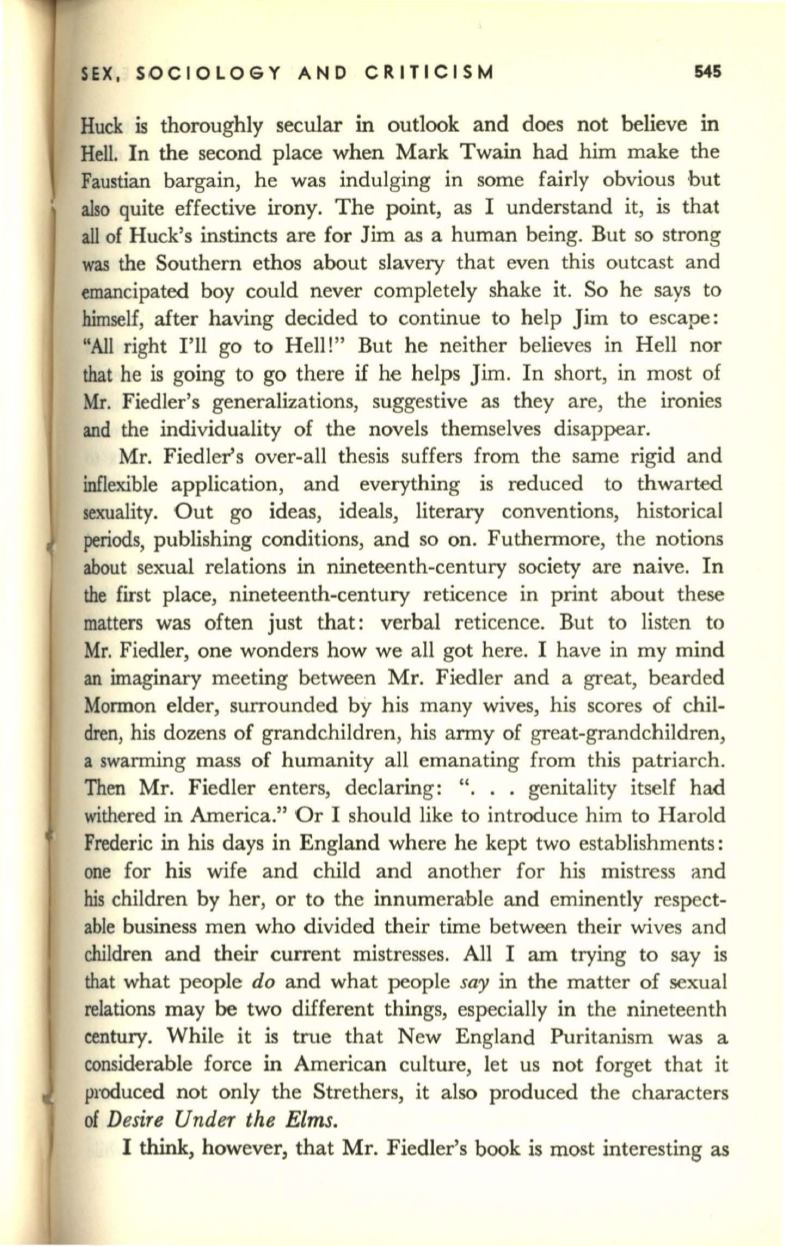
SEX, SOCIOLOGY AND CRITICISM
545
Huck
is
thoroughly secular in outlook and does not believe in
Hell. In the second place when Mark Twain had him make the
Faustian bargain, he was indulging in some fairly obvious but
also quite effective irony. The point, as I understand it, is that
all
of Huck's instincts are for Jim as a human being. But so strong
was
the Southern ethos about slavery that even this outcast and
emancipated boy could never completely shake it. So he says to
himself,
after having decided to continue to help Jim to escape:
"All right I'll go to Hell!" But he neither believes in Hell nor
that he is going to go there if he helps Jim. In short, in most of
Mr. Fiedler's generalizations, suggestive as they are, the ironies
and the individuality of the novels themselves disappear.
Mr. Fiedler's over-all thesis suffers from the same rigid and
inflexible application, and everything is reduced to thwarted
sexuality. Out go ideas, ideals, literary conventions, historical
periods, publishing conditions, and so on. Futhermore, the notions
about sexual relations in nineteenth-century society are naive. In
the first place, nineteenth-century reticence in print about these
matters was often just that: verbal reticence. But to listen to
Mr. Fiedler, one wonders how we all got here. I have in my mind
an imaginary meeting between Mr. Fiedler and a great, bearded
Mormon elder, surrounded by his many wives, his scores of chil–
dren, his dozens of grandchildren, his army of great-grandchildren,
a swarming mass of humanity all emanating from this patriarch.
Then
Mr. Fiedler enters, declaring: "... genitality itself had
withered in America." Or I should like to introduce him to Harold
Frederic in his days in England where he kept two establishments:
one for his wife and child and another for his mistress and
his children by her, or to the innumerable and eminently respect–
able business men who divided their time between their wives and
children and their current mistresses. All I
am
trying to say is
that what people
do
and what people
say
in the matter of sexual
relations may be two different things, especially in the nineteenth
century. While it is true that New England Puritanism was a
considerable force in American culture, let us not forget that it
produced not only the Strethers, it also produced the characters
of
Desire Under the Elms.
I
think,
however, that Mr. Fiedler's book is most interesting as


